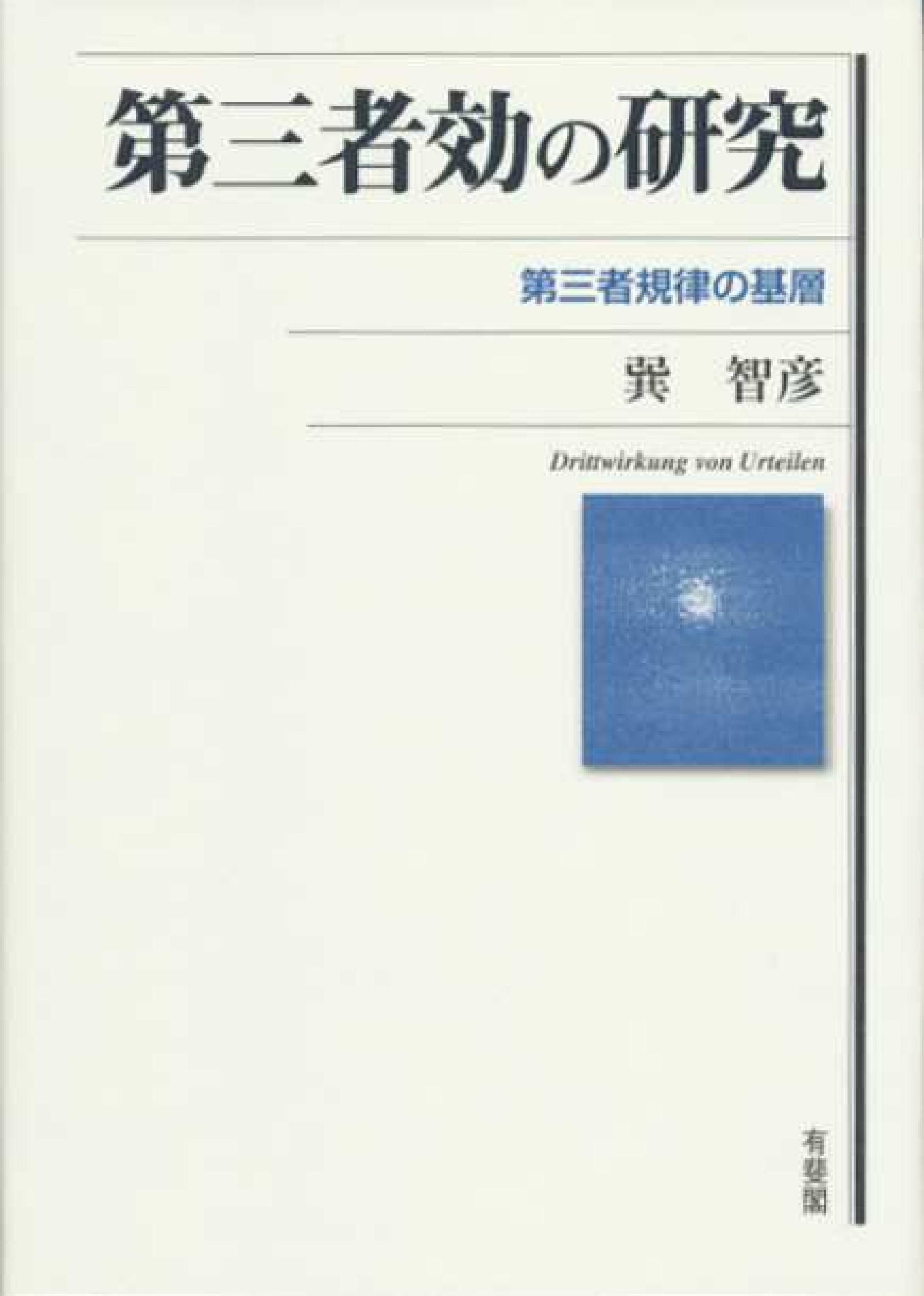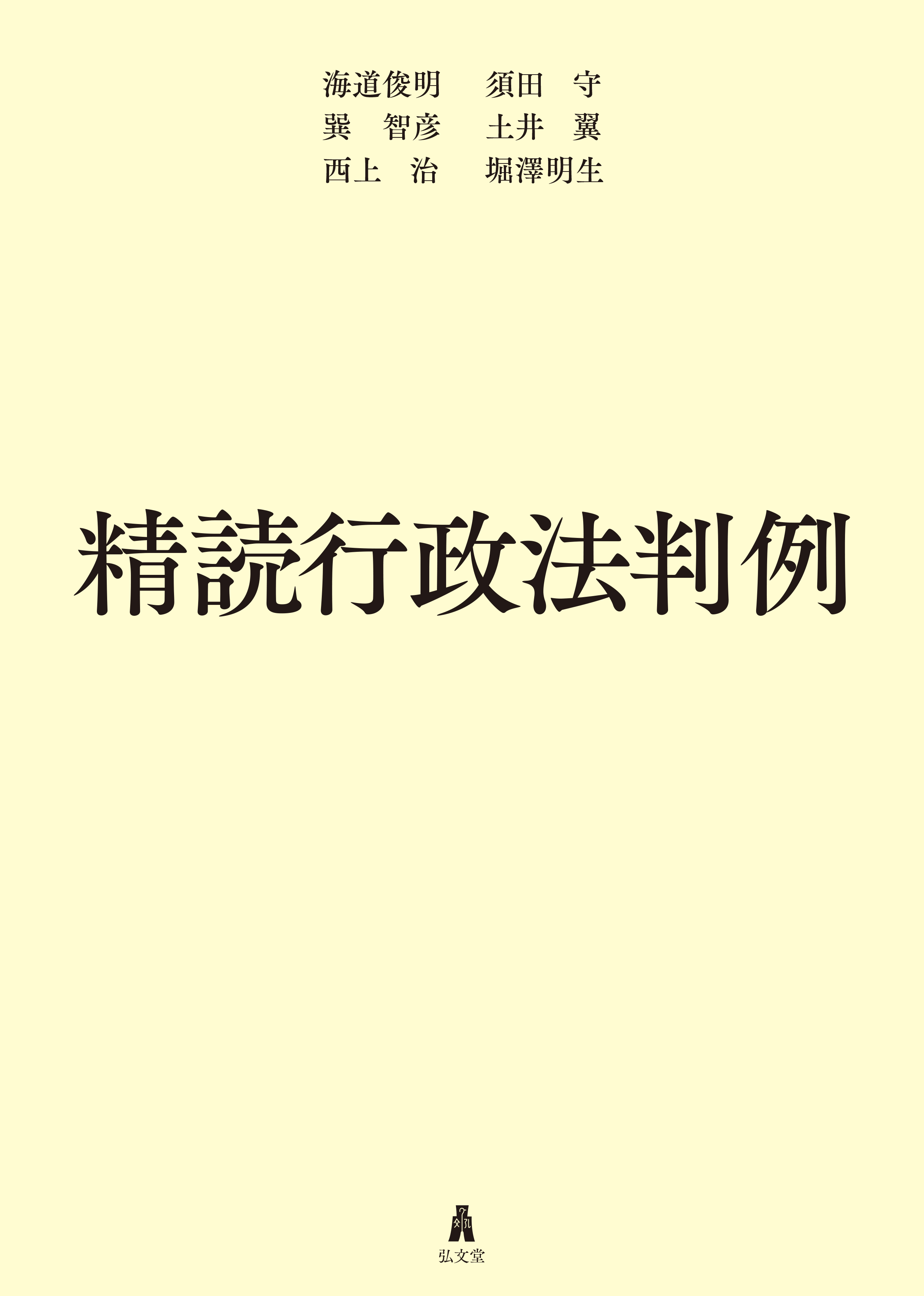
Title
Drittwirkung von Urteilen Daisansyakō no Kenkyū (erga omnes Effect of the Judgements)
Size
414 pages, A5 format, hardcover
Language
Japanese
Released
September, 2017
ISBN
978-4-641-22729-3
Published by
Yuhikaku Publishing
Book Info
See Book Availability at Library
Japanese Page
As a general rule, court judgments are effective only against those who have participated in the process. However, judgments to revoke actions of administrative agencies (revocation judgments) are also exceptionally effective against those who have not participated in the process (third parties) (Article 32 Paragraph 1 of the Administrative Case Litigation Act). The subject of this book is the "meaning" and "function" of this "third-party effect" of such judgments. In the past, this theme had fallen into the gap between several fields of law, but I am proud to say that I was able to open up a hidden blue ocean known only to a few until now.
Firstly, the "meaning" of the third-party effect is commonly understood as derived from German law, which has greatly influenced Japanese procedural law. However, the third-party effect of the revocation judgment is in fact derived from French law, and cannot be accurately understood through the German way. On the other hand, if the French understanding is brought in, it will be inconsistent with Japanese procedural law. To untangle this confusion, the first part of this book revisits the history of German jurisprudence. I found that the concept of "Gestaltungswirkung,” which is vaguely used in both Japan and Germany, has two different meanings. More importantly, I note that there is a fundamental difference in views between France, which considers the applicability of legal status to third parties as an opposability (“opposabilité”), and Germany, which considers it in the dichotomy of validity and invalidity.
Secondly, the core "function" of the third-party effect is to avoid confusion caused by the fact that legal relations are determined differently by different people (uniform resolution of disputes). Interestingly, unlike Japan and France, Germany does not recognize the third-party effect of revocation judgments. However, third parties affected by a revocation judgment in Germany must always be involved in the litigation (compulsory joinder), which enables the judgment to be effective for all interested parties, thereby achieving a uniform resolution of disputes. The second part of the book deconstructs the current situation in Germany, which has a contrasting legal system. As a result, it was found that Germany insists on the one-time resolution of disputes, prohibiting the recurrence of disputes in exchange for participation in the procedure, while France has allowed the provisional resolution, and Japan actually has a system that could aim for the best of both Germany and France. Considering that the second part of the book would be of interest to Germans, I submitted it as a paper to a German peer-reviewed journal while studying in Heidelberg, and became the first Japanese author to be published in the journal (s. Tatsumi, GVRZ (Otto Schmidt) 2020-1, Nr. 3).
While I consider this a praiseworthy achievement, I must note that it took me ten years to complete this work, and relying on the excellent previous works of legal scholars. For those who are interested in law but hesitant to pursue an academic career, I would like to say that this book was written by a former law student who could not read German or French at all (nor English satisfactorily), and did not know how to deal with his vague curiosity. I would be very happy if people are inspired by my book, and unafraid to knock on the door of legal research!
(Written by TATSUMI Tomohiko, Associate Professor, Graduate Schools for Law and Politics / 2021)
Related Info
Tomohiko Tatsumi: Einheitliche Streitbeilegung im Verwaltungsprozess - Beiladung und inter-omnes-Urteilswirkung in Deutschland, Frankreich und Japan (From the journal “Zeitschrift für das gesamte Verfahrensrecht” – GVRZ (Otto Schmidt Feb 6, 2020)
https://www.degruyter.com/document/doi/10.9785/gvrz-2020-030103/html



 Find a book
Find a book


 eBook
eBook
